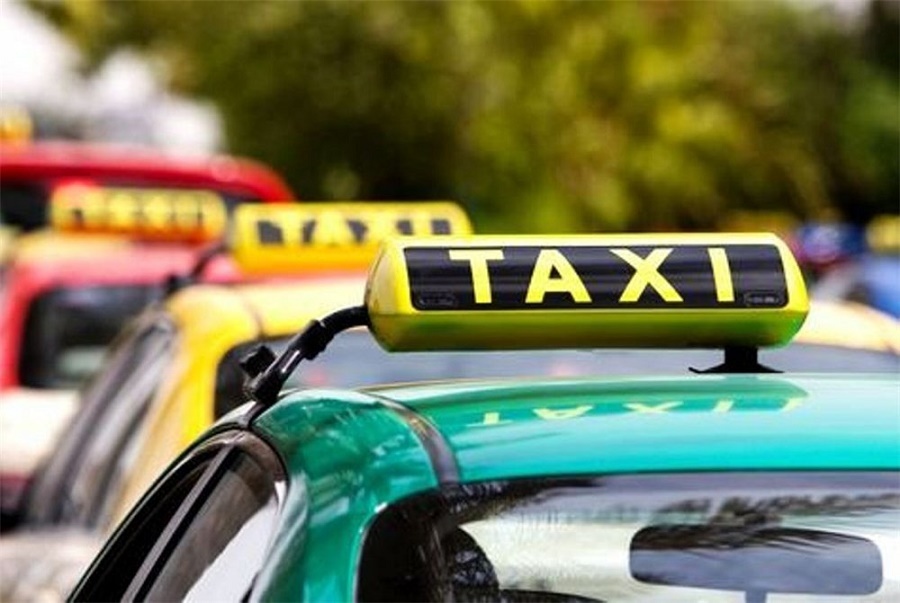Careem v Uber: the local kid is winning

Careem’s flexibility in dealing with governments may give it the edge it needs over Uber and upstarts such as Egypt’s Ousta.
Careem announced Tuesday that it had cut a deal with Dubai’s Road Transport Authority (RTA) to be the sole app provider for its 9,841 taxis and 4,700 limousines.
A similar arrangement has already been rolled out in Egypt and Bassel Al Nahlaoui, Careem’s vice president of business development and government relations, says it’s a policy that’s now part of the company’s toolbox for working with governments.
Major ride hailing companies have been dealing with uncertain regulations in two of the region’s biggest markets for months, as tensions have risen in the UAE and Egypt. But it’s been Middle East-born Careem which has been able to take advantage of the turmoil.
Uber and Careem suspended services in Abu Dhabi in August after police were arresting their drivers. Careem relaunched days later. In Egypt, after heavy pressure from legislators, Careem also developed a program to include the country’s 'white' taxi drivers in the app, in what was a forerunner to the RTA deal.
Dubai takeover
Careem’s deal with Dubai RTA makes it the incumbent power in the city of 2.5 million people.
Fares will remain the same for Careem’s service, which by UAE law must be 30 percent higher than those of companies with taxi licenses, as will Dubai Taxi’s rates.
Al Nahlaoui wouldn’t disclose the financial details of the partnership. He said the company was in “a good position” to handle the extra customers, but did not provide any adjusted growth numbers to account for the over 100,000 extra daily rides Careem Dubai could be handling.
RTA figures in March showed that in 2015, Dubai Taxi saw a 14 percent rise in rides with a total of 47 million trips, or an average of 129,000 trips a day. Its profits rose 3.7 percent in 2015 to 280 million Emirati dirhams (US$76 million).

An Uber problem
Careem’s size and localness has allowed it more flexibility in its regional dealings.
Careem enabled people to use cash payments long before Uber’s local offices followed suit. It also has the space to try ideas like ‘family cars’ which are fitted with child seats. And in Dubai they were able make a deal with the RTA in just a few months, said Al Nahlaoui.
In a statement to Wamda, Uber said it had been in ongoing discussions with the RTA for over two years, which included bringing taxis onto the platform.
“We believe that any agreement signed must put the riders' interest first - especially when it comes to reliability, affordability and ensuring data privacy,” an Uber statement said.
The company was annoyed by the requirement to charge 30 percent more than an RTA taxi, saying it prevented them offering the same level of service as elsewhere around the world.
But where Uber’s rigid corporate structure means it may not be able to move as fast as Careem, it may also be a protection.
By flooding its Dubai service with cheaper cars Careem risks weakening its original business - if users can call up a Dubai Taxi as easily as a Careem captain, why choose the much more expensive option?
Walking the regulatory tightrope in Dubai
Reuters quoted RTA director-general Mattar al-Tayer saying that all e-hailing services that wanted “to continue working in Dubai must sign an agreement with us”, for reasons of safety and monitoring.
Dubai’s RTA is notoriously strict on newcomers to the transportation industry, as it not only writes the rules but also operates one of the city’s taxi companies, Dubai Taxi Corporation. Last year, it launched a ride sharing app called Sharekni and was considering an hourly car rental option.
However, in March the startup Udrive wasn’t able to get its pay-per-minute car hire business off the ground because RTA regulations stipulated that vehicles had to be hired for a day or more.
That rule was struck down by Crown Prince of Dubai Sheikh Hamdan bin Mohammed Al Maktoum at the end of September.

Scrambling in Egypt
In September in Egypt Careem officially started its white taxi plan. As of September 27 they’d trained 100 drivers of a potential 42,000, according to a company statement.
The statement did not provide any details on how many Egyptians were using the white taxi option, as cynicism around the low level of service, comfort and safety provided by these taxis was a key reason for the flight to options like Uber and Careem in the first place.
The move came after several legislators demanded Uber and Careem be forced to hire white taxi drivers.
It also came in light of a $250 million investment in the region from Uber and the rise of Ousta, a homegrown e-hailing startup that launched in March which is rapidly gaining market share across Egypt with its exceptionally low-priced offering. Yesterday Ousta prices got even cheaper as they announced a 20 percent discount on all rides for the next three months.

The committee looking into the nascent ride hailing sector - remember it only began in November 2014 in Egypt - said last week they were on the cusp of drafting legislation to regulate the industry.
Uber, on the other hand, has partnered with Cairo’s underused Nile Taxi.


